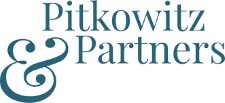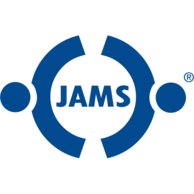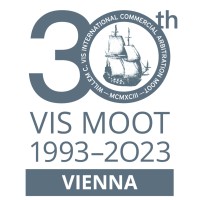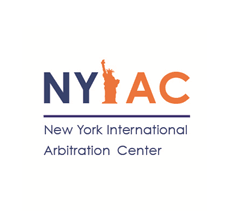Monday 3 April 2023
Hosted at Palais Hansen Kempinski Vienna
Schottenring 24, 1010 Vienna, Austria
Registration is open for in-person only
a recording will be available for purchase after the event
JURIS is pleased to announce that our Leading Arbitrator’s Symposium will again be held in person during the Vis Moot competition in Vienna. This four-panel program will feature leading arbitration practitioners and scholars who will tackle important questions about the changing dynamics of international arbitration. This includes post-pandemic considerations, security, sustainability, the next generation of arbitrators, changes to arbitral rules, and more.
Registration
Note: We thank you for your continued support of our return to in-person programs.
Register online with the links below or fill out a PDF registration form and send to our manager, Jessica Hernandez (jhernandez@jurispub.com).
Pricing is available for individual sessions. Please contact our manager, Jessica Hernandez (jhernandez@jurispub.com) for details.
REGISTRATION CLOSED
* ONLY available to full-time academics [with no law firm affiliation], government employees, and full-time in-house corporate counsel.
** Wire transfer information and student rate contact – jhernandez@jurispub.com
Cancellations: 50% of the Symposium fee will be refunded for any cancellation received in writing by Juris Conferences LLC prior to Monday 20 March 2023. No refund can be made for cancellations received after this date. You are welcome to send a substitute at any time. Please notify us if you plan to send a substitute as updated registration materials will be required.
Cancellations: 50% of the Symposium fee will be refunded for any cancellation received in writing by JURIS Conferences LLC prior to the Monday 20 March 2023. No refund can be made for cancellations received after this date. You are welcome to send a substitute at any time. Please notify us if you plan to send a substitute since updated registration materials will be required.
Registration Fee Includes:
30-day full access to JURIS’ Arbitration Law database (including Leading Arbitrators Guide to International Arbitration – Third Edition), Access to conference recording, refreshments at breaks, luncheon, and a drinks reception following the program. The fee does not include accommodations.
Continuing Legal Education: 7 hours of NY CLE credit (transitional and non-transitional) in the Areas of Professional Practice and a general certificate of attendance will be provided upon request.
Student Rate: For “traditional” full-time students with current student ID and no monetary affiliation to any law firms, companies, or government organizations. Contact JURIS Conferences at: events@jurispub.com for current rate.
Financial Aid:
Our Financial Aid policy is available here
Program
8:00 – 8:45 Registration – coffee and tea upon arrival
8:45 – 9:00 Welcome – Special Announcement by Michael Kitzen – CEO, JURIS and Jean-Rémi de Maistre – CEO, Jus Mundi
9:00 – 10:30 Working Session 1 – Initial Organization of the Arbitral Proceeding and Pre-Hearing Activities
Leader: Nikolaus Pitkowitz – Partner, Pitkowitz & Partners (Vienna)
Panelists:
Prof. Milena Djordjevic – University of Belgrade
Shelby Grubbs – JAMS
Mark Morril – Independent Arbitrator (New York)
Colm Ó hOisín S.C. – Independent Arbitrator (Dublin)
Prof. Patricia Shaughnessy – Stockholm University
Discussion Topics:
- Is data protection becoming a standard item on the agenda for the CMC? And are parties and arbitrators genuinely engaging in the process, both before and during the procedure?
- What are best practices in relation to virtual hearings; are these now the default for case management conferences? When is it appropriate for the arbitrators to require these over objection of a party?
- What are best practices in relation to cyber security, and how can we balance security demands and practical considerations, recognizing the wildly differing expectations and preferences of all participants in an arbitration.
- Practicalities of submissions: is sufficient thought given to optimizing the shape and form of submissions including numbering, hyperlinking, etc? What works best for one party or even both, may not be optimal for the arbitrators. How should their interests be balanced and is this adequately and transparently addressed for instance in the CMC?
- Is sustainability the new diversity? Should we aim for comprehensive, industry wide standards based on more research and clear guidelines on the carbon footprint of arbitration or start with small steps regardless?
- Third-party funding: at what stage should funding be disclosed and have standards developed sufficiently to allow sensible disclosure?
- There is increasing guidance on the use of tribunal secretaries, both in institutional rules and guidelines and in case law. Is practice changing and how can practice be improved further?
10:30 – 11:00 Networking Coffee/Tea Break
11:00 – 12:30 Working Session 2 – Effective Presentation of Evidence – Focus on Damages in Complex Cases
Leader: Kathleen Paisley – Paisley BVBA (Boechout)
Panelists:
Eleonora Coelho – President, CAM-CCBC (São Paulo)
Wulf Gordian Hauser – Partner, Hauser Rechtsanwälte GmbH & Co KG (Vienna)
Timothy G. Nelson – Partner, Skadden, Arps, Slate, Meagher & Flom (New York)
Lawrence Newman – Of Counsel, Baker McKenzie (New York)
Stefan Riegler – Partner, Wolf Theiss (Vienna)
Discussion Topics:
- Procedures for best presenting complex damages evidence
– avoiding ships passing in the night. - When are tribunal-appointed experts useful; should they always appear at a hearing and be subjected to questions about his or her conclusions?
- Do the Prague Rules add anything, or is there a predominating style of taking evidence in international arbitration, i.e., have we arrived at a Lex naturalis arbitri void of cultural differences?
- Presentation of evidence by videoconference. Is this effective? The future?
- Is it always necessary to have an oral hearing? When is summary disposition permissible (or necessary)?
- Who controls the length of a hearing? Should arbitrators impose their views or defer to the parties?
- Are there too many witnesses, too many documents – is advocacy lost among the detail?
- How can the tribunal or parties control tactical decisions by parties not to cross-examine key witnesses?
- Is witness conferencing effective? Is this only for experts? Are there particular circumstances when it is most appropriate? Inappropriate?
12:30 – 14:00 Networking Luncheon
14:00 – 15:30 Working Session 3 – Next Generation Leading Arbitrators
Leader: Filip Boras – Partner, Baker McKenzie (Vienna)
Panelists:
Živa Filipič – Acting Deputy Secretary General, ICC International Court of Arbitration (Paris)
Dr. Simon Gabriel – Gabriel Arbitration AG (Zurich)
Catherine Anne Kunz – Partner, Lalive (Geneva)
Niamh Leinwather – Secretary General, Vienna International Arbitral Centre (Vienna)
Anna-Maria Tamminen – Partner, Hannes Snellman (Helsinki)
Discussion Topics:
- How to get first appointments in high-profile cases?
- What should the new generation of leading arbitrators do differently than previous generations to succeed?
- How important is the predictability of decision making in the selection of an arbitrator? How to overcome this if a young arbitrator has no sufficient track record of existing awards?
- How to give clients the comfort of appointing a young arbitrator?
- Is service as a Tribunal secretary useful? Necessary?
- What was the most useful advice panelists have received about how to preside as chair?
15:30 – 16:00 Networking Coffee/Tea Break
16:00 – 17:30 Working Session 4 – Tribunal Deliberations and Dynamics
Leader: Grant Hanessian – Independent Arbitrator (New York)
Panelists:
Dominique Brown Berset – Partner, Brown and Page (Geneva)
Cecilia Carrara – Partner, Legance (Rome)
Calvin Hamilton – Arbitra International (London)
Inka Hanefeld – Hanefeld Rechtsanwälte Rechtsanwaltsgesellschaft mbH (Hamburg)
Luis Martinez – Vice President, AAA-ICDR (New York)
Discussion Topics:
- Are there best practices as to how a Tribunal should organize its work? Should the chairman be delegated all procedural responsibilities? Or, if less, what should the chairman have delegated to him or her? Does the efficiency of the arbitration as to the delivery of the award depend entirely on the chairman? What can the wing arbitrators do to increase efficiency and assure quality?
- To what extent should, or must, arbitrators disclose that they are using secretaries? If the arbitrators want to use secretaries and disclose their identity and involvement, how should they do it? Are arbitrators complying with the ICC’s note applicable to arbitrators and secretaries? What can parties and counsel do if they are not aware of certain arbitrators’ practices in this regard until after they appoint them? Or the chairman, whom they may not have appointed?
- What can be done if an arbitrator is not doing his or her work as the case proceeds or is not paying attention in the course of the proceedings? What if this is the chairman?
- Should the arbitrators deliberate on the award immediately after the final evidentiary hearing? After the receiving the post-hearing briefs? After post-hearing oral argument? Should the arbitrators meet in person? Or by telecommunication? Should arbitrators discuss among themselves the merits of the cases as they proceed? Should such discussions be mandatory? Avoided? Casual or structured (for example, “What did we learn today?”).
- What should the third arbitrator do if the other arbitrators discuss the case or meet without him or her?
- Compromises – how imperfect is a unanimous award? Should the tribunal accommodate the potential dissenting arbitrator? If so, how? For example, with respect to the award of legal fees? What does a dissent accomplish?
- When should, or may, the arbitrators rule on the basis of theories or arguments that the parties have not made? What if the arbitrators believe that parties have not understood the precedents they cite, or the facts they refer to, in the same way as the arbitrators do? When should the arbitrators go to the parties and ask for their comments? Should there be a difference between legal and factual issues?
- What should the arbitrators do if they do not understand certain expert testimony? For example, damages evidence? Should they ask the parties for comments? What if they are working under a deadline to get the award out? Or they don’t want to confess their inability to understand the evidence?
- To what extent may arbitrators do their own research on matters of general knowledge, such as how certain machines in the case actually work? Or how certain financial investments function?
17:30 – 19:00 Cocktail Reception by Hauser Partners at the Rennverein – Palais Pallavicini
Conference Co-Chair
Grant Hanessian is an independent arbitrator in New York, specializing in international, investor-state and complex commercial disputes. Mr. Hanessian has acted as arbitrator and counsel in a wide range of commercial and treaty disputes arising under the laws of many common and civil law countries and public international law. Prior to July 2020, he was a partner at Baker McKenzie, where he practiced for 33 years, and served as global co-head of the firm’s International Arbitration Practice, head of its International Arbitration Practice in North America and head of its New York office Litigation Department.
Inka Hanefeld primarily acts as arbitrator and counsel in international arbitration proceedings in the fields of international trade, industrial plant and machine building, energy, banking & finance, as well as in post-M&A and investor-State disputes. Before establishing her own private practice in 2005, Inka worked in the dispute resolution department of a leading international law firm for seven years from its offices in Vienna, New York, Frankfurt, and Hamburg. She holds a Master of Laws in International Legal Studies (LL.M.) from New York University School of Law and is admitted to the German and New York Bar. Moreover, she is a member of the Paris Bar (Directive 98/5/EC).
Faculty
Filip Boras: heads the Dispute Resolution Practice Group in the Baker McKenzie Vienna office and is a member of the firm’s global International Arbitration Steering Committee. His experience covers a wide variety of disputes related to Central & Eastern Europe, including international commercial and investment arbitration before all major institutions and ad hoc tribunals. He is widely recognized as a leading lawyer for dispute resolution in Central & Eastern Europe.
Dominique Brown Berset: has been acting as counsel, co-counsel, arbitrator, sole arbitrator, and president of arbitral tribunals in numerous cases around the world, including in cases involving states and international organizations at both private and governmental levels. She is on the CAS panel of arbitrators and on the Board of the Swiss Institute of Comparative Law; is Vice-president of the Executive Board of the Institute for Transnational Arbitration; she has held leading positions in several professional organizations.
Cecilia Carrara: has experience in the field of national and international, commercial and investment arbitration proceedings, both institutional and ad hoc, acting as counsel and as arbitrator. She represents international and Italian companies in arbitration-related proceedings in front of the national courts. Cecilia practices before the Italian Supreme Court. She also focuses on mergers & acquisitions, extraordinary corporate transactions, and commercial contracts. Responsible for Legance German desk, having a specific focus on German speaking countries and Eastern Europe.
Eleonora Coelho: obtained her law degree from the University of São Paulo (USP) and obtained her master’s degree in Civil law, Arbitration and Alternative Dispute Resolution Methods from the Paris II – Panthéon-Assas University. She is currently the President of the CAM-CCBC and acts as arbitrator and attorney in several national and international arbitration proceedings. Ms. Coelho is member of the body of arbitrators of many Arbitration and Mediation Chambers in Brazil.
Milena Djordjevic is an Assistant Professor at the University of Belgrade Faculty of Law and a member of the ICC International Court of Arbitration She holds degrees from universities of Belgrade (LL.B and Dr. iur.) and Pittsburgh (LL.M). Dr. Djordjevic has been an arbitrator (sole arbitrator, member of the panel or chair), expert witness and counsel in domestic and international arbitrations and in ad hoc arbitration in more than 50 cases.
Živa Filipič: acts as Deputy Secretary General of the ICC International Court of Arbitration since February 2023. She joined the ICC International Court of Arbitration in 2012 as Deputy Counsel, first in the Eastern European and then the North American team. In 2014 she was promoted to the position of Counsel of the Middle Eastern team, and afterwards to Managing Counsel in 2017. She is a Slovenian qualified layer and holds an L.L.M. from King’s College London (KCL).
Simon Gabriel: specializes in representing parties in complex arbitration proceedings and regularly sits as arbitrator. He has participated in over 100 international arbitration proceedings under ICC Rules, Swiss Rules, Vienna Rules, DIS Rules, SCC Rules, and ad hoc rules. Simon is the President of the ICC Swiss Commission of Arbitration and ADR and Swiss delegate in the ICC Commission of Arbitration and ADR in Paris.
Shelby Grubbs: of Atlanta, Georgia, USA has served on panels for JAMS, AAA, CPR, ICDR, ICC and WIPO. He is a special master in Cabrera v. Islamic Republic of Iran, in the U.S. District Court for District of Columbia. He was named Atlanta’s International Commercial Arbitration 2023 Lawyer of the Year by Best Lawyers in America and co-edits the AtlAS Desk Book. Past, academic appointments include Georgia State, Emory, and Vanderbilt Universities.
Calvin Hamilton: is a Chartered Arbitrator with more than 30 years’ experience. He is civil law qualified and has sat as arbitrator under ICC, ICDR, LCIA, Madrid Court of Arbitration, Zurich Chamber of Commerce, Hungarian Chambers of Commerce and Industry and UNCITRAL Rules in a variety of seats located in Caribbean, Latin America, USA, Africa and Europe. Calvin is a highly regarded Member of the ICC International Court of Arbitration. He is fluent in Spanish, proficient in French and has working knowledge of Portuguese. He is a dual national of Guyana and Spain and admitted in New York and Madrid.
Inka Hanefeld: is a German and New York qualified lawyer, also admitted to the Paris bar, specialized in dispute resolution and arbitration. Inka is the founding partner of the international dispute resolution boutique HANEFELD with offices in Hamburg and Paris. She is a former vice-president of the ICC International Court of Arbitration and currently serves on the ICC Governing Body. She regularly sits as arbitrator in domestic and international arbitration proceedings, both commercial and investment.
Grant Hanessian: independent arbitrator in New York, specializing in international, investor-state and complex commercial disputes. He has acted as arbitrator and counsel in a wide range of commercial and treaty disputes arising under the laws of many common and civil law countries and public international law. Prior to July 2020, he was a partner at Baker McKenzie, where he practiced for 33 years, and served as global co-head of the firm’s International Arbitration Practice, head of its International Arbitration Practice in North America and New York office Litigation Department.
Wulf Gordian Hauser: Senior Partner of Hauser Partners Rechtsanwälte. His main areas of practice are international commercial arbitration, mergers and acquisitions and capital markets. He was Austrian member of the ICC court from 2012 – 2018 and has served in over 100 arbitrations. His arbitration activities focus on post M&A-disputes, construction, technology, corporate and private foundations.
Catherine Anne Kunz: partner at LALIVE in Geneva, Switzerland. Catherine is dual-qualified in Switzerland and in England and Wales (solicitor) and specializes in international commercial arbitration, in particular the engineering and energy sectors as well as in joint venture/post M&A disputes. She has been recognized for several consecutive years as a Future Leader in International Arbitration by Who’s Who Legal and ranked Global Elite Thought Leader under 45 in 2023.
Niamh Leinwather: since 1 January 2022, has taken office as the new Secretary General of the Vienna International Arbitral Centre (VIAC). Of Irish origin, she has both a common and civil law background (Bachelor of Civil Law, University College Dublin, Mag.iur., University of Vienna, Master of European Studies, University of Vienna). She was the first Irish woman to be admitted to the Austrian Bar in 2013 and has over a decade of experience in international dispute resolution at Freshfields Bruckhaus Deringer in Vienna where she acted as both counsel and arbitrator.
Luis M. Martinez: Vice President, International Centre for Dispute Resolution (ICDR), and international division of American Arbitration Association (AAA), and Honorary President of Inter-American Commercial Arbitration Commission (IACAC). He is an integral part of ICDR’s international strategy team and responsible for international arbitration and mediation business development for East Coast of United States (Maine to Florida), Central and South America, Caribbean, EU, and UK. Also responsible for case administration of international cases out of the AAA-ICDR’s Miami office.
Mark Morril: Chambers-ranked independent arbitrator, Fellow of Chartered Institute and College of Commercial Arbitrators. Experience includes transactions, insurance, technology, telecommunications, oil/gas, pharma/life sciences, partnerships/JVs, IP, media/entertainment. Earlier: General Counsel, Simon & Schuster; Deputy General Counsel, Paramount Global; law firm litigation partner. Also: ICC Commission; ADR in Arbitration Task Force, ICCA-NYC Bar-CPR Protocol on Cybersecurity in International Arbitration; ICC Commission Report on Leveraging Technology for Fair, Effective, and Efficient International Arbitration Proceedings. Details at https://morriladr.com
Timothy G. Nelson: New York partner of Skadden, Arps, Slate, Meagher & Flom LLP, represents clients in U.S. courts and international arbitration (including before ICSID, AAA, ICC, HKIAC, LCIA, SIAC, the PCA and under UNCITRAL rules). His cases involve sectors such as oil and gas (upstream, midstream), nuclear, solar, mining, cement, finance, insurance, pharmaceuticals, telecommunications, retail, sports, motor racing and hotel/property investment. He is widely published and quoted on matters of international law, cross-border disputes, space law, and international arbitration, he is co-editor of Take the Witness: Cross-Examination in International Arbitration.
Lawrence Newman: Of Counsel in Baker & McKenzie’s New York office. He practices mainly in the areas of international litigation and arbitration and has represented clients in courts and before arbitration tribunals. Served as arbitrator in cases under the rules of the AAA/ICDR and the International Chamber of Commerce. Co-editor of The Leading Arbitrators’ Guide to International Arbitration which is the basis of the Leading Arbitrators Symposium on the Conduct of International Arbitration.
Colm Ó hOisín: Barrister (Senior Counsel) and independent arbitrator in practice at the Bar of Ireland. Also, member of the Bar of England and Wales, the Bar of Northern Ireland, and an Associate Tenant with Kings Chambers (Manchester, England). Wide-ranging practice concentrated on commercial and public law litigation and on international arbitration. Formerly President of Arbitration Ireland. Member of the ICC International Court of Arbitration (2015-2021). Currently designated by Ireland to the ICSID Panel of Arbitrators.
Kathleen Paisley: is a recognized international arbitrator based in Europe and the US, with a focus on technology, life sciences, energy, and corporate/accounting disputes. Her experience includes commercial and investor-State disputes, especially those involving complex damages, and she is triple qualified in law, accounting, and finance, with strong background in economics. She has held partnerships in Morrison & Foerster and White & Case and has served as general counsel at both technology and life sciences companies.
Nikolaus Pitkowitz: is founding partner and head of dispute resolution at Pitkowitz & Partners, and President of the Vienna International Arbitral Centre (VIAC). He acted as arbitrator and party counsel in over 130 international disputes across Europe, in the Americas, and in Asia, among others the largest ever pending arbitration in Austria. Pitkowitz & Partners is a leading international law firm ranked by GAR 100 among the world’s leading arbitration practices.
Stefan Riegler: heads the Arbitration team at Wolf Theiss and specializes in advising on disputes in the energy, construction, and infrastructure sectors. He is also experienced in handling corporate, post-M&A and banking disputes. Stefan serves as President of the Board of the Austrian Arbitration Association (ArbAut) and is a member of the Board of the Vienna International Arbitral Centre (VIAC).
Patricia Shaughnessy: Professor at Stockholm University, is a member of the ICC Court, the ICC Commission, formerly the Vice-Chair of the SCC Board, and a government-appointed expert on the 2019 revisions to the Swedish Arbitration Act. She is the President of the VIS Moot Organization and serves as an arbitrator, expert, and consultant in legal development projects. She practiced for ten years in the US and served as a US Supreme Court fellow.
Anna-Maria Tamminen: partner in Hannes Snellman’s Dispute Resolution Group specializing in commercial arbitration and litigation, with a special focus on complex international disputes. Anna-Maria has arbitrated cases under the ICC Rules, SCC Rules, FAI Rules, Vienna Rules, LCIA Rules, DIA Rules, UNCITRAL and PCA Rules. She has worked with clients active in many industries, including energy and renewables, forestry, construction, pharmaceuticals, telecoms, logistics and financial services. Anna-Maria has acted as arbitrator in approximately 25 cases.
Accommodations
Palais Hansen Kempinski Vienna – Guest rooms are available at special conference rates from March 30th until April 8th, 2023.
Booking Link Event Palais Hansen Kempinski Vienna
Buchungslink Event Palais Hansen Kempinski Wien
Hotel Contact Information:
Palais Hansen Kempinski Vienna
Schottenring 24 1010 Vienna Austria
Hotel Reservations Contact:
Tel: +43 1 236 1000 8040
E-mail: reservation.vienna@kempinski.com
*Refer to JURIS Conferences Leading Arbitrators’ Symposium








